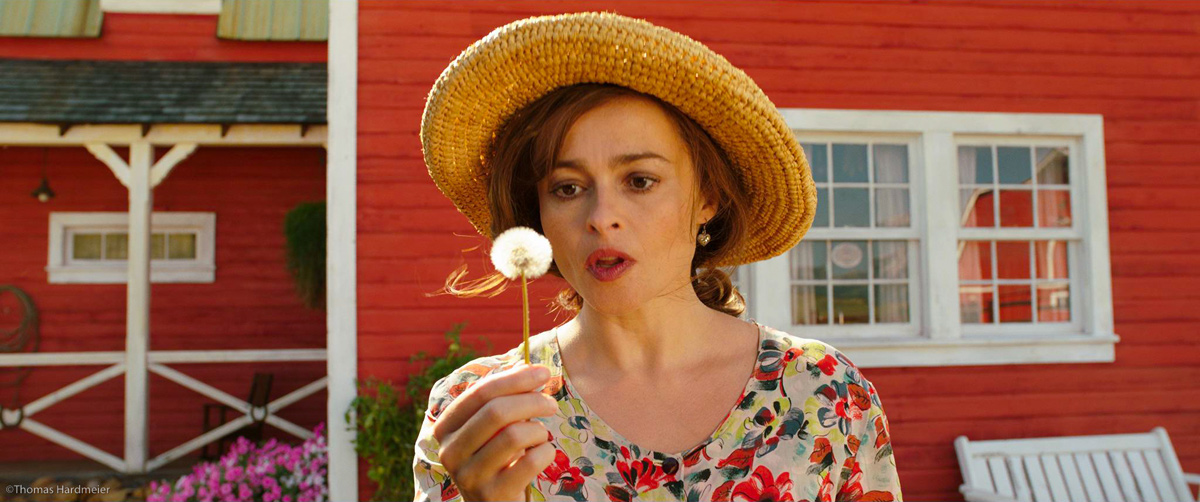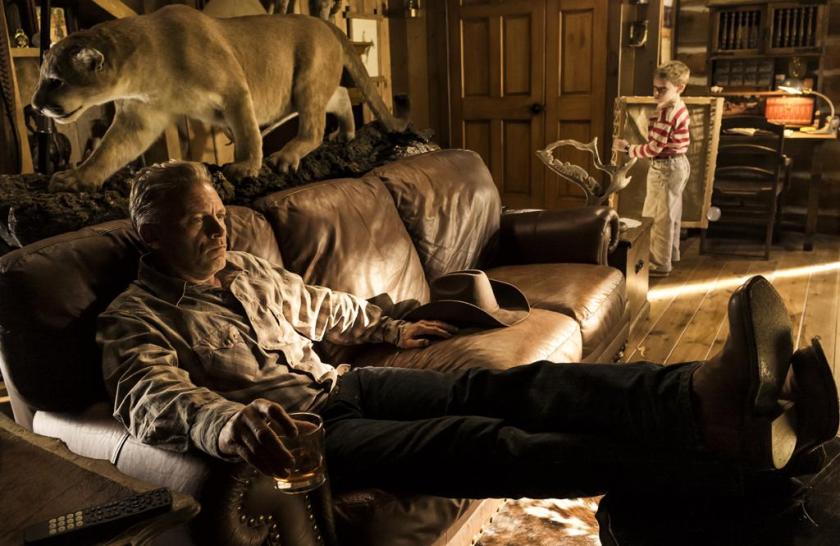The French auteur Jean-Pierre Jeunet is best known and loved for his early work: Delicatessen, The City of Lost Children and (conveniently ignoring Alien: Resurrection) Amélie. These films introduced him as a director with a very particular, rather charming vision; they were sublime, sometimes twisted works of partial fantasy which the more recent A Very Long Engagement and Micmacs didn't quite live up to. With his latest, T.S. Spivet, Jeunet does something quite exciting: he takes the highly characterful way he sees the world and fashions it into three dimensions. It makes for a vibrant vision, a series of marvellous moments in a film whose narrative unfortunately fails to take flight in the same way.
Adapted from the American author Reif Larsen's 2009 debut The Selected Works of T.S. Spivet and going by the original, more august title The Young and Prodigious T.S. Spivet, Jeunet's latest has now become plain old T.S. Spivet. In the film at least, T.S. is a 10-year-old boy (he's 12 in the book) living on an isolated ranch near Divide, Montana.
T.S. (Kyle Catlett) is a nervous, odd and alienated little chap who's neglected by his parents, belittled by his science teacher - who seems to find him a threat - and who is in mourning for his twin, Layton (Jakob Davies). His adventure begins when he wins a prestigious science award for his perpetual motion machine and is invited to the Smithsonian in Washington DC to accept it. The only problem is his creation is so accomplished they've assumed he's an adult inventor.
 But he heads off anyway and, with his family still shattered by grief, it seems at first as if no-one will even notice he's gone. His mother Dr Clair (Helena Bonham Carter, pictured right, who's well cast but underemployed) is an entomologist who has become obsessed with the search for a probably nonexistent species of beetle, to the detriment of her family and wider work, while his cowboy father (Callum Keith Rennie) is an antisocial and insensitive man who was taciturn even before the death of his favourite child. Meanwhile. T.S.'s teenage sister Gracie (Niamh Wilson) is lost in her own irascibly teenage self-absorption.
But he heads off anyway and, with his family still shattered by grief, it seems at first as if no-one will even notice he's gone. His mother Dr Clair (Helena Bonham Carter, pictured right, who's well cast but underemployed) is an entomologist who has become obsessed with the search for a probably nonexistent species of beetle, to the detriment of her family and wider work, while his cowboy father (Callum Keith Rennie) is an antisocial and insensitive man who was taciturn even before the death of his favourite child. Meanwhile. T.S.'s teenage sister Gracie (Niamh Wilson) is lost in her own irascibly teenage self-absorption.
It suffers from the same issue as Martin Scorsese's Hugo (with which Spivet shares a stereographer, Demetri Portelli) in that it might be too wise for children and too lacking in thrills for adults. Catlett shoulders the weight of the film, turning in a highly plausible performance in the midst of this oddest of landscapes, but he makes for a desperately melancholy hero. Since the story is imparted heavily through T.S.'s narration his ennui dominates the film, and those around him become little more than background sketches.
Furthermore it feels like an age before we get to the adventure part and those "characters" T.S. meets along the way don't make the expected impression, despite being played by the likes of Dominique Pinon (a Jeunet regular) and Julian Richings. Judy Davis - as an ambitious, deluded Smithsonian employee - gets to have more fun than most, letting rip with a profane rant, which in a moment of enjoyable bad taste ends up being directed at a child.
The 3D, however, is something special (and I say this as someone who thinks that 3D is overused, and largely misapplied or ineffective). You can tell it was shot in the format instead of being cynically converted post-production - Jeunet has described how he conceived the film in 3D, that the script and storyboards were all penned with this at the forefront of his mind; he even slowed the pace of the action to avoid the problem of strobing. This has a detrimental effect on the momentum of the story, but from the bulbous nose of a professor to the sharp beak of a taxidermied bird of prey (captured mid-pounce) to the ingenious inventions that float and fly before us, Spivet often compensates in awe.
As a whole, Jeunet's outsider's view of America is aesthetically pleasing - as warm as it is weird, with more than a touch of magical realism. Yet it all feels like surface shine and on a deeper level his seventh film simply fails to satisfy; T.S. Spivet might intermittently dazzle by harnessing the third dimension, but unfortunately most of its characters remain frustratingly two-dimensional.
Overleaf: watch the trailer for T.S. Spivet
Follow @EmmaSimmonds on Twitter















Add comment